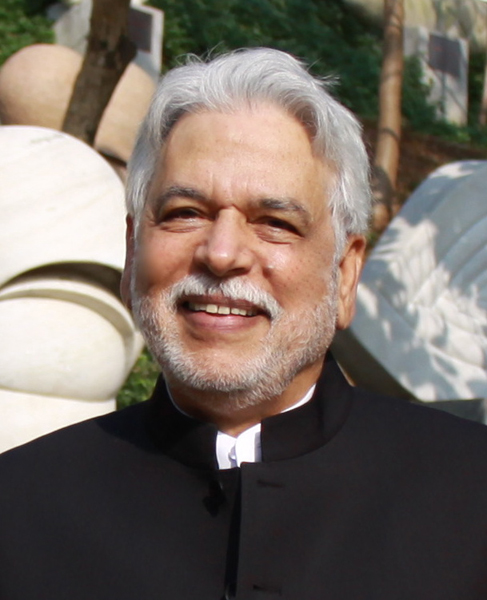Bilal Haq, a scientist and a poet, was formerly at the US National Science Foundation as the director for marine geoscience programs. He is currently a research associate at the Smithsonian Instituti on in Washington DC and an associated research professor at Sorbonne University’s UPMC in Paris. As a marine geoscientist he has been honored by several professional awards in and marine sciences in the US and Europe. He was elected a member of European Academy of Sciences, and was honored by Sorbonne with doctoris honoris causa degree for his works on sea-level changes of the Phanerozoic and the impact of the on-going sea-level rise on maritime nations. Haq has broad experience in the academia, the industry and the government, and has also held assignments with the White House and the World Bank in Washington DC. He has taught or undertaken research as a visiting professor at many universities around the world, including MIT, Oxford, Cambridge, Copenhagen, Paris, and at Tongji University in China. His research career also includes a twelve-years tenure at Woods Hole Oceanographic Institution and six years with Exxon Production Research Company.
on in Washington DC and an associated research professor at Sorbonne University’s UPMC in Paris. As a marine geoscientist he has been honored by several professional awards in and marine sciences in the US and Europe. He was elected a member of European Academy of Sciences, and was honored by Sorbonne with doctoris honoris causa degree for his works on sea-level changes of the Phanerozoic and the impact of the on-going sea-level rise on maritime nations. Haq has broad experience in the academia, the industry and the government, and has also held assignments with the White House and the World Bank in Washington DC. He has taught or undertaken research as a visiting professor at many universities around the world, including MIT, Oxford, Cambridge, Copenhagen, Paris, and at Tongji University in China. His research career also includes a twelve-years tenure at Woods Hole Oceanographic Institution and six years with Exxon Production Research Company.
In geosciences Haq’s publications are amongst some of the most cited. The influence of this work can also be gauged by the inclusion of one of his paper (Haq et al., 1987) published in Science Magazine that is listed among the 100 most influential publications in Geosciences of all times, a list that includes such luminaries as Lyell, Darwin, Hutton and Milankovitch. He has also been honored by his peers by the naming of a marine plankton species and a fossil genus after him.
As a poet Bilal Haq has published four volumes of verse since 2015. Because he has spent most of his career trying to find hidden patterns in Nature, our planet’s past conditions, its ancient oceans and climates, his research took him to some of the most pristine places on Earth that reveal what our World could be like if we had the foresight and will to rehabilitate it. His poetic message is a simple one that we have to relearn to live in peace with Nature if we are to endure. He divides his time between Paris, France, and Washington, DC.